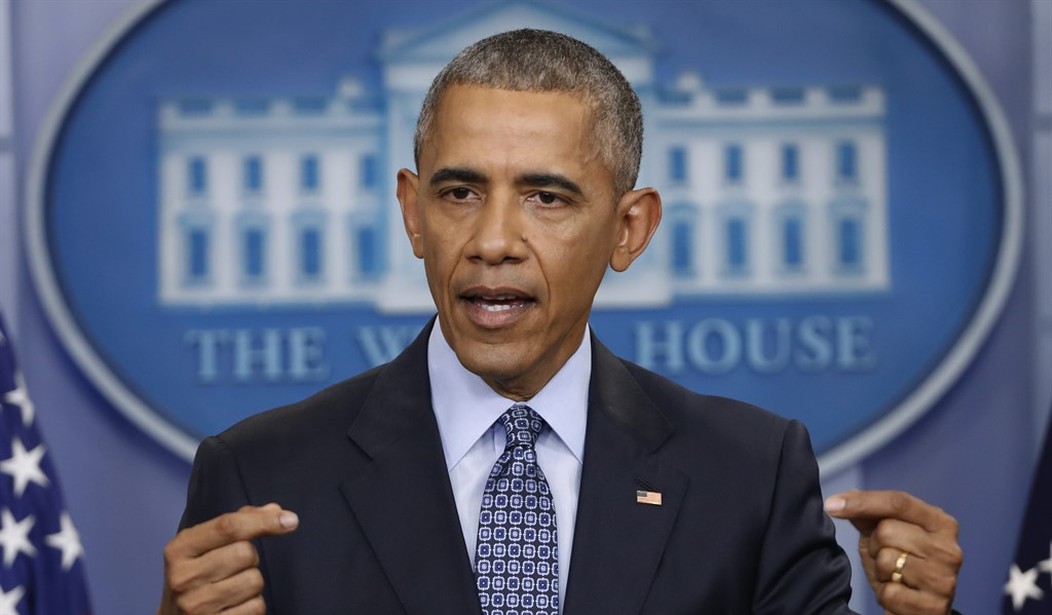When Barack Obama and John Kerry announced the public terms of the deal with Iran to pause their drive for nuclear weapons for a decade, Americans objected to it as a hostage swap for cash. Politico’s Josh Meyer now reports that this aspect of the deal turned out to be worse than we imagined. Not only did Obama and Kerry agree to release or stop pursuing more Iranians than the number of Americans released in return, they turned out to be much more dangerous than how the Obama administration painted them for public consumption:
In his Sunday morning address to the American people, Obama portrayed the seven men he freed as “civilians.” The senior official described them as businessmen convicted of or awaiting trial for mere “sanctions-related offenses, violations of the trade embargo.”
In reality, some of them were accused by Obama’s own Justice Department of posing threats to national security. Three allegedly were part of an illegal procurement network supplying Iran with U.S.-made microelectronics with applications in surface-to-air and cruise missiles like the kind Tehran test-fired recently, prompting a still-escalating exchange of threats with the Trump administration. Another was serving an eight-year sentence for conspiring to supply Iran with satellite technology and hardware. As part of the deal, U.S. officials even dropped their demand for $10 million that a jury said the aerospace engineer illegally received from Tehran.
And in a series of unpublicized court filings, the Justice Department dropped charges and international arrest warrants against 14 other men, all of them fugitives. The administration didn’t disclose their names or what they were accused of doing, noting only in an unattributed, 152-word statement about the swap that the U.S. “also removed any Interpol red notices and dismissed any charges against 14 Iranians for whom it was assessed that extradition requests were unlikely to be successful.”
One of the prisoners released was central to Iran’s pursuit of Western nuclear technology. Seyed Abolfazl Shahab Jamili operated for seven years in the US until the Department of Justice finally caught up with him, during which time he helped advance Iranian nuclear-centrifuge development dramatically. Thanks to his efforts, Iran’s ten-year pause will likely mean nothing even if Iran sticks to the terms of the deal — or at least those parts of the deal that have been made public. Another fugitive that got his Interpol red card revoked spent several years procuring US military antennas — used in IEDs that killed US military personnel in Iraq.
Meyer describes DoJ prosecutors as “shocked and angry” over the deal, and even more so over the public accounting of the prisoners swapped as part of it. However, it may not have come as a surprise to them. As far back as 2014, the Obama White House began to pressure federal prosecutors to slow-walk investigations into Iranian procurement efforts and sanctions violations. One supervisor described it to Meyer as an “embargo” on any Iran cases that long preceded the deal. It seems Obama and Kerry were already giving away the store even before coming to the bargaining table.
Why is this coming out now? Why didn’t people talk about this last year? It seems that the election of Donald Trump and the retention of Republican majorities in Congress might have something to do with that. Trump and Kerry’s successor Rex Tillerson just pledged to do a full review of the Iran deal and the Iranians’ compliance with it, and that would have eventually included a review of the swap. That would reveal the extent to which the Obama administration undermined its own non-proliferation efforts to get this deal, and how it undermined American national security too:
Former Obama administration officials deny that, saying the men could still be prosecuted if they continue their illegal activity. But with their cases dropped, international arrest warrants dismissed and investigative assets redirected, the men — especially the 14 fugitives — can now continue activities the U.S. considers to be serious threats to its national security, [non-proliferation expert Valerie] Lincy said.
“This is a scandal,” she said. “The cases bear all the hallmarks of exactly the kinds of national security threats we’re still going after. It’s stunning and hard to understand why we would do this.”
It’s not hard to understand at all. Barack Obama and John Kerry desperately needed a win on foreign policy in 2015-6 after seeing its “smart power” approach turn the Middle East and Caucasus into flames. They didn’t care if it was a short-term win that sacrificed long-term national security; they just wanted to claim some sort of win, and they figured they could lay the blame on its implosion on their successors.
This deal is getting worse all the time … and not because Iran is altering the terms, either.








Join the conversation as a VIP Member